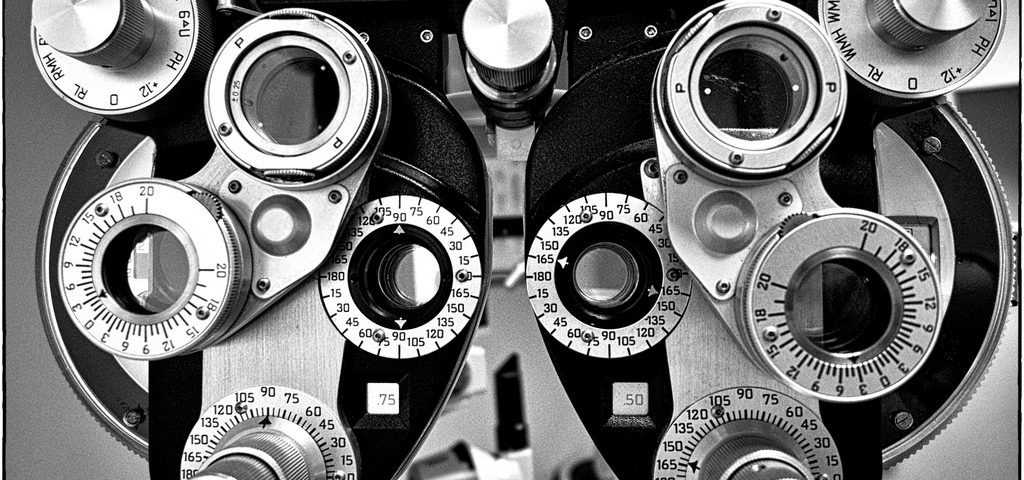Reliability of Subjective Refraction
June 2024 Update Newsletter
June 20, 2024
Higher than Expected – Rate of Pediatric Keratoconus in U.S.
July 12, 2024Originally published in NKCF Update (June 2024).
Anyone who undergoes a comprehensive eye exam has likely answered the question, “Which is better, one or two?”. Manifest refraction, also known as subjective refraction, is the traditional way of measuring refractive error. It relies on the patient’s subjective response to which option is clearer after the doctor introduces slight changes in the power and cylinder.
A recent study from Israel compared results of manifest refraction in a group of keratoconus patients with unaffected subjects.
Thirty patients with keratoconus and thirty age-matched healthy controls were first tested using an auto refractor. Patients may be familiar with this device, where an image (often a hot air balloon) comes in and out of focus while the machine automatically determines the corrected distance visual acuity (CDVA). For patients with irregular corneas, the measurements may be less reliable, and optometrists will confirm the machine’s results using “old school” manifest refraction.
In this study, two experienced optometrists were engaged to perform consecutive subjective refractions after auto refraction. The two tests would take place in the same room, with the same lighting, during the same visit to minimize changes that could be the result of disease progression.
The purpose was to see if subjective refraction results differed significantly. Acceptable deviation has been previously established as 0.10-0.20D (diopters) in healthy subjects. Researchers in this study defined deviations greater than 0.50D to be clinically significant.
In the control group, only 1 subject out of 30 had a difference over 0.50D in measurements performed by the two optometrists. In the KC group, 12 of 30 subjects had different CDVAs over 0.50D, and 10 of the subjects recorded a difference greater than 0.75D.
The study found differences up to 1.63D between the two optometrist’s results in the KC group.
The ability to read the Suellen eye chart is another method used to collect refraction data. A difference of at least one row of letters between the two optometrist’s findings was present in 46.7% of the KC subjects, and 21.7% of the control subjects. The authors concluded there was a tenfold higher likelihood of a measurement difference of at least one line in patients with KC.
New York City-based optometrist, Dr. Julie Song OD, FAAO, said this may help to explain why individuals with keratoconus are often disappointed when they visit multiple doctors. “Inter-practitioner variability can alter results that treatment plans are dependent upon.” Dr. Song noted, “the importance of continuity of care with the same practitioners can be inferred from the results of this study. If the same optometrist performed the manifest refraction each time for the same patient, measuring progression through manifest refraction, although outdated, can be more consistent.”
Treatment decisions, such as corneal crosslinking, are often made based on changes in CDVA. Progression can be based on measurements captured by imaging devices or can be based on more subjective measures like manifest refraction. This study reminds eyesore professionals that reproducibility of results for patients with keratoconus can vary and has the potential to influence clinical decision making.
Reference: Mahler S, Einan-Lifshits A, et al, Reproducibility of manifest refraction in patients with keratoconus compared with healthy subjects: A prospective cohort study, Am J Ophthalmol, 2024 Apr 25:S0002-9394(24)00168-5. doi: 10.1016/j.ajo.2024.04.023. Online ahead of print.
 Dr. Julie Song OD, FAAO is a graduate of the Univ. of Arizona Honors College and the State University of New York (SUNY) College of Optometry. She completed a residency at SUNY, where she specialized in fitting complex contact lenses. Named a 2023 Eye Care Visionary, Dr. Song is recognized as a rising star in the field. Dr. Song is a fellow of the American Academy of Optometry and practices at Fromer Eye Centers in the NYC.
Dr. Julie Song OD, FAAO is a graduate of the Univ. of Arizona Honors College and the State University of New York (SUNY) College of Optometry. She completed a residency at SUNY, where she specialized in fitting complex contact lenses. Named a 2023 Eye Care Visionary, Dr. Song is recognized as a rising star in the field. Dr. Song is a fellow of the American Academy of Optometry and practices at Fromer Eye Centers in the NYC.



